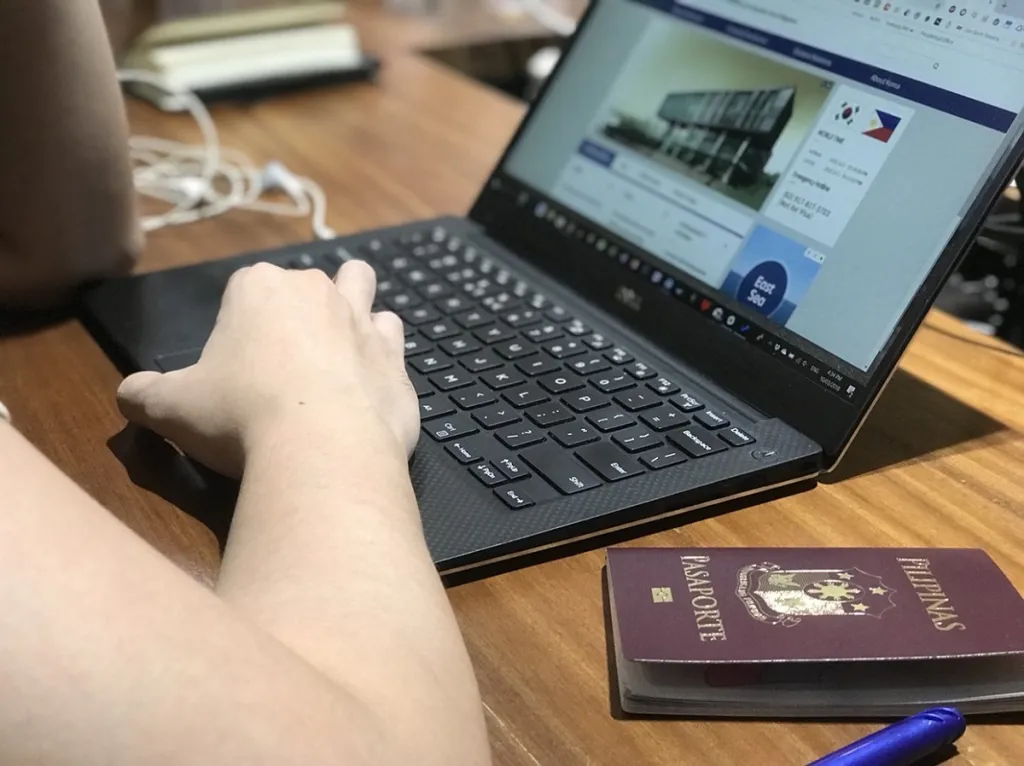The promise of new flavours beckons from Banawe.
Common Reasons for Visa Denials Among Filipinos (Plus: Tips for Visa Approval!)

Have you ever been denied a visa? You’re not alone. It’s even likely that on your first taste of this nightmare, you didn’t have a chance to find out what went wrong, and if you could have done something to turn the situation around.
The US Embassy, for example, can only go as far as give you a green card and your passport back upon denying you that coveted travel document. It’s up to you to review everything that went on during your interview with the consul, and how you filled out your application form. I’ve previously written several articles on visa denials and based on the insights I’ve gathered, these are the most common reasons for visa denials among Filipinos across the following visa-required countries.
Note: The applications described in this article are for tourist visas only. The case may be different when applying for work, study or other types of visas.
Also read: Visa-Required Countries With Surprisingly Easy Visa Applications for Filipinos
US Visa
Common reason: You did not practise for your interview
We know that the interview (followed by your application form) is the ultimate deciding factor in getting a US Visa. To people who excel at public speaking or talking to people in general, this is almost always not an issue. Or is it? Even if you have that American English accent down, every word you that comes out of your mouth can make or break the interview.
The whole setup of the application process, from the ‘official’ looking halls to the dead serious staff members, will frighten you at some point. And it might lead you to stutter or have uneasy eye connection with the consul. Even someone so honest and with nothing but pure intentions would have a hard time hiding these. In addition, you don’t take time to review everything you’ve written on your application form, forgetting the most basic details like your monthly salary when asked by the consul.
How to increase your chances of approval
Don’t think that you can just wing your interview as some people do. Practise just enough so you can remember the important pieces of information you provided on your application form. These will be the ones the consul will most likely ask you about. These include the purpose of your trip, your length of stay, your accommodation plans, your itinerary, your job and average monthly salary. When asked, reply as quickly as you can. The rule is that the less you talk, the less probability the consul will have doubts about you and keep asking you more questions.
South Korea Visa
Common reason: You did not show strong economic ties to the Philippines
Most applicants who are employed at the time of application for a South Korea Visa probably think they have it easier. After all, having a job shows that you are able to support yourself enough financially to go on a South Korean trip, which is not the most affordable one to go on for an average Filipino traveller. But this is not always true. In fact, this is how a large number of applicants fail to get that visa even after they’ve completed their requirements.
If you’ve been employed in your current company for less than a year and your monthly salary is right by or below the average starting salary for employees, it might give the impression that you’re still open to finding better opportunities abroad. Worse, you resort to depositing a large amount of money into your bank account just a few days before your application. You probably think you can get away with it, don’t you? Wrong.
How to increase your chances of approval
If you’re recently hired or don’t earn enough on your current job or, it will help to have even a small business or a property such as a condo unit under your name. You can then submit relevant documents for those too. Otherwise, have an immediate family member sponsor you for your trip and submit an explanation letter detailing your situation. Slowly build your bank savings, like depositing ₱3,000-5,000 per month to prove that you’re not only earning regularly but also able to save regularly.
Schengen Visa
Common reason: You did not provide enough proof for your purpose
Unlike a South Korea Visa which only entitles you to 30 days of stay, a Schengen Visa will let you travel to Schengen-member countries for up to 90 days. While this is indeed exciting, it also means you have to double your effort in planning your trip to show your embassy of choice that you will only be visiting Europe for tourism, and tourism alone. Some applicants get way too excited to the point where they try to make the most of those allotted days for a full three-month backpacking adventure. The only thing is that they don’t have the funds to prove it, which might mean that they could overstay as a tourist or use that time to work or study short-term. Not good!
How to increase your chances of approval
Since you’re applying for a tourist visa, make sure that whatever documents you submit will support your intention. These include a thoroughly crafted itinerary that includes the places you will go to and when you intend to visit them. If you’re watching a concert, make sure to present a copy of your ticket. If visiting a friend or relative, prepare documents that show your relationship with that individual like an invitation letter or your photos together. Have those hotel and flight reservations in hand too. Then, make sure to cover these crucial details in your cover letter instead of filling it up with flowery words.
Also, if you only have ₱150,000 in your bank account, your trip should be no more than two weeks long. If you own a business or are working as an employee, prepare your legal documents or approved leave of absence to show that you have no reason to do anything else in Europe other than a leisurely visit.
Other common reasons
- You did not submit one or more requirements.
- You did not prove your relationship with a sponsor or inviting person.
- You don’t have previous international travels.
Avoid these by
- COMPLETING your requirements. That should be self-explanatory. If you can’t provide all of them, submit an explanation letter (only if the concerned embassy allows). Or apply at a later time, when you’re more likely to apply without deficiency.
- PRIORITISING your immediate family members, if you want someone to sponsor your trip. If the inviting person is not related to you by blood, prepare photos, mails or anything that will convince the embassy that you truly know this person.
- TRAVELLING to visa-free countries for Filipinos first. Even if it’s not in your heart to visit nearby Southeast Asian countries at this time because you already decided to dedicate your savings to a big European or US tour, this is the only way to show the consuls that you have a reliable travel reputation. Some of these countries are even so affordable to travel to that you’ll still have enough money left to pursue those big trips.
Also read: 10 Things You Should Never Do in Any Visa Application
Of course, there are at least a hundred more reasons Filipinos get denied a visa no matter the country, like submitting fake documents, having criminal records or sheer bad luck with consuls. However, the ones I explored here have undeniably been the biggest deal breakers for Philippine passport holders for years on end.
If you’re prone to any of them on your next trip to an embassy or a travel agency, know that you’ll have to exert extra effort to make it work for you somehow. It’s not enough for you to keep reapplying without evaluating and correcting your previous mistakes. You know what they say: Try and try until you succeed! Although I’d much rather put ‘evaluate and correct’ somewhere along that line too.
Published at
About Author
Joser Ferreras
Subscribe our Newsletter
Get our weekly tips and travel news!
Recommended Articles
10 Best Banawe Restaurants for a Mouthwatering Food Trip in QC 10 Commandments for Responsible Travel Flexing Spread the good word!
Top 10 Post-Breakup Destinations for Healing and Self-Rediscovery Ready for a solo travel?
10 Tips for Planning Out-of-Town Trips During Typhoon Season Stay safe and travel well during the rainy season.
15 Types of Travel Bags You Should Use In This Lifetime Everything’s so useful!
Latest Articles
6 Filipino Foods to Eat During New Year's Eve for Better Luck and Wealth in 2026 Lucky Filipino foods you need for a prosperous Year of the Fire Horse!
FREE NYE 2026 Countdown & Firework Shows in the Philippines Don't waste ₱17k on hotel tickets! Catch SB19, Bamboo, and Ely Buendia for FREE.
New US Biometric Rule Filipino Travellers Must Know Mandatory border photo checks
Free MRT 3 Rides on Rizal Day 2025 Four hours of free rides
SM North-Trinoma Walkway Soon to Be Built, Says DOTr Safer walks ahead!

